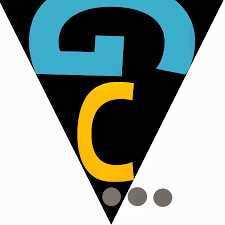Search engine optimization (SEO) is the process of increasing the visibility of a website to users searching through a web search engine and subsequently increase site traffic and revenue. SEO differentiates itself from paid placement, meaning everything is organic. This term excludes the purchase of paid placement and refers only to the improvement of unpaid results.
Implementing effective SEO practices on your website entails adding optimal keywords to attract searcher and engines; taking advantage of your website’s title, URL, and meta descriptions; and creating compelling content just to name a few. The world of SEO is complex and always changing but if understand the basics, applying your knowledge can make a significant difference and set you apart from your competitors.
SEO requirements keep changing, and it can be hard to keep up with the latest developments. But if you want your site to get traffic, you have to be in the know.
Well-optimized sites get more and more traffic over time, and that means more leads and sales. Without SEO, searchers won’t be able to find your site, and all your hard work will be for nothing.
On-Page Ranking Factors
The way your page is optimized can have a huge impact on its ability to rank.
What are On-Page Ranking Factors for SEO?
On-page ranking factors can have a big impact on your page’s ability to rank if optimized properly. The biggest on-page factors that affect search engine rankings are:
Content of Page
The content of a page is what makes it worthy of a search result position. It is what the user came to see and is thus extremely important to the search engines. As such, it is important to create good content. So what is good content? From an SEO perspective, all good content has two attributes. Good content must supply a demand and must be linkable.
Good content supplies a demand:
Just like the world’s markets, information is affected by supply and demand. The best content is that which does the best job of supplying the largest demand. It might take the form of an XKCD comic that is supplying nerd jokes to a large group of technologists or it might be a Wikipedia article that explains to the world the definition of Web 2.0. It can be a video, an image, a sound, or text, but it must supply a demand in order to be considered good content.
Good content is linkable:
From an SEO perspective, there is no difference between the best and worst content on the Internet if it is not linkable. If people can’t link to it, search engines will be very unlikely to rank it, and as a result the content won’t drive traffic to the given website. Unfortunately, this happens a lot more often than one might think. A few examples of this include: AJAX-powered image slide shows, content only accessible after logging in, and content that can’t be reproduced or shared. Content that doesn’t supply a demand or is not linkable is bad in the eyes of the search engines—and most likely some people, too.
But, with over 1 billion websites online today, how do you create awesomeness?
One thing I know for sure is that all of these ranking factors are all shaped to create a better, more awesome user experience.
With Google evaluating sites based on hundreds of ranking factors, knowing where to aim your SEO strategy in 2019 for the biggest bang might seem impossible.
But good news: Ranking signals are going to continue to adapt to the user.
This means that new SEO trendsalready surviving have roots in the current algorithm — and with a little creativity and SEO savvy, it’s entirely possible for you to rank well in 2019.
While ranking signals are far from limited to just seven, the factors highlighted in this post are ones I consider to be the most important for this year.
Here are the ranking factors that will really matter in 2019
The trend to voice search
According to Google, 72 percent of people who own a voice-activated speaker say that their devices are often used as part of their daily routine.
It’s evident that since the growth of AI assistants like Siri, Alexa, and Cortona, a new way of searching is coming.
Optimizing for the way people speak can feel like going to your first yoga class.
You’re looking around at what other people are doing, trying to breathe deeply while holding your lotus cup above your head, meanwhile, you’re just waiting for savasana. #Awkward.
Rich Snippets
Rich snippets use schema to markup your text and data for better visibility in Google search results.
Rich snippets could mean photos or ratings on your result (which is standard for recipes) like this.
